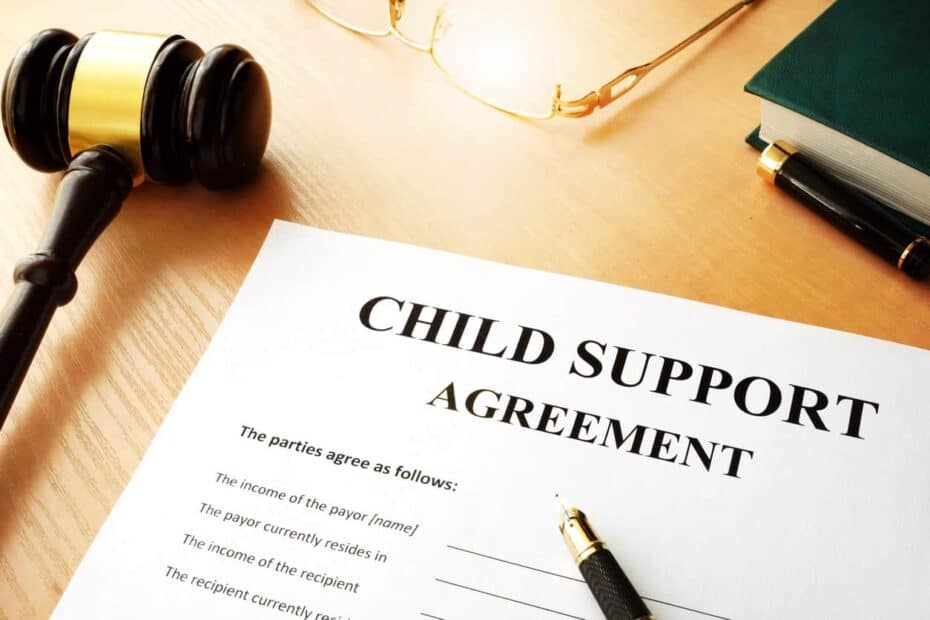Child support cases can be straightforward—or they can feel like trying to solve a Rubik’s Cube blindfolded. Some parents manage the process without a lawyer, filing paperwork and reaching agreements on their own. Others find themselves drowning in legal jargon, complex calculations, and heated disputes. So, how do you know if you need a child support lawyer?
Well, that depends. If your case is as simple as filling out forms and getting a court-stamped approval, you might be fine on your own. But if there’s a disagreement over payments, custody, or modifications, having legal help can make a world of difference. Let’s break it down.
When You Probably Don’t Need a Lawyer
Let’s be real—lawyers aren’t cheap. If both parents agree on an amount, there’s no dispute over income, and everything is going smoothly, you may not need legal representation. Many states even provide resources to help parents calculate child support and file agreements without stepping into a courtroom.
Here’s when you might be okay handling things solo:
- You and your co-parent agree on payment amounts (and it aligns with state guidelines).
- Neither of you is trying to change custody arrangements dramatically.
- There are no disputes over income or financial disclosures—no one’s hiding money or suddenly claiming they’re broke.
- The child support office provides clear guidance, and you feel comfortable navigating the paperwork.
But even in a “simple” case, a quick consultation with a lawyer can be helpful. A legal professional can review your agreement to make sure it’s enforceable and fair. The last thing you want is a lopsided arrangement that causes problems down the road.
When You Should Seriously Consider a Lawyer
Not every child support case is as friendly as a co-parenting commercial. When things get complicated, having a lawyer can mean the difference between a fair outcome and years of financial stress.
Your Ex is Fighting the Support Order
If the other parent is refusing to pay, underreporting their income, or trying to reduce payments unfairly, you need legal backup. A lawyer can help gather financial records, challenge false claims, and ensure your child gets the support they deserve.
You’re Dealing with a High-Conflict Situation
Let’s say your ex is argumentative, manipulative, or outright hostile. Handling a legal dispute with someone like that can be emotionally draining—and mistakes can cost you in the long run. A lawyer acts as a buffer, handling negotiations and keeping the process on track.
There’s a Change in Circumstances
Lost your job? Your co-parent just got a big raise? If either parent’s financial situation changes significantly, child support payments may need to be adjusted. Courts don’t automatically make these changes—you have to file a modification request. And if your ex fights it? That’s where a lawyer comes in handy.
You’re Not Sure What’s Fair
Child support laws vary by state, and calculations can be confusing. If you’re unsure whether you’re paying (or receiving) the right amount, a lawyer can break down the numbers and make sure everything aligns with legal guidelines.
Your Ex Has a Lawyer—And You Don’t
This one’s obvious. If the other parent has legal representation and you don’t, you’re at a disadvantage. Even if you’re confident in your case, it’s tough to argue legal nuances against someone trained in them.
How a Lawyer Can Actually Save You Money
Hiring a lawyer sounds expensive—and it can be. But not having one can cost even more in the long run. A strong legal argument can mean the difference between fair payments and years of overpaying (or struggling to collect what you’re owed).
For example:
- A lawyer can prevent costly mistakes, like missing a deadline or filing incomplete paperwork.
- If you’re overpaying, they can help reduce your payments.
- If you’re not receiving enough, they can ensure accurate financial disclosure from the other parent.
- They can help enforce unpaid support, so you’re not left chasing money that should be coming to your child.
In many cases, what you spend on legal help is outweighed by the financial benefits of a fair support arrangement.
How to Find the Right Child Support Lawyer
If you decide you need legal help, the next step is finding the right attorney. You don’t just want any lawyer—you want someone with experience in family law and a strong track record in child support cases.
Here’s what to look for:
- Experience with child support cases—Not just general family law. Child support has its own rules and nuances.
- Transparent fees—Some lawyers charge hourly, others offer flat fees. Know what you’re getting into.
- Strong communication—If a lawyer doesn’t return your calls, that’s a red flag.
- Local expertise—Laws vary by state, so you need someone familiar with your jurisdiction.
If you’re facing a tough child support battle, having an experienced legal team on your side can make all the difference. Child support lawyers specialize in these cases, helping parents navigate disputes, enforce payments, and ensure fair outcomes.
Final Thoughts: Do You Really Need a Lawyer?
At the end of the day (okay, I know I’m not supposed to say that, but here we are), it comes down to how complicated your case is. If everything is smooth and uncontested, you might not need one. But if there’s conflict, financial disputes, or major changes involved, getting legal help is a smart move.
Your child’s financial well-being isn’t something to gamble with. A good child support lawyer can protect your rights, ensure fair payments, and take the stress off your shoulders. So if you’re unsure whether you need one—ask. A consultation could save you a lot of headaches later on.






